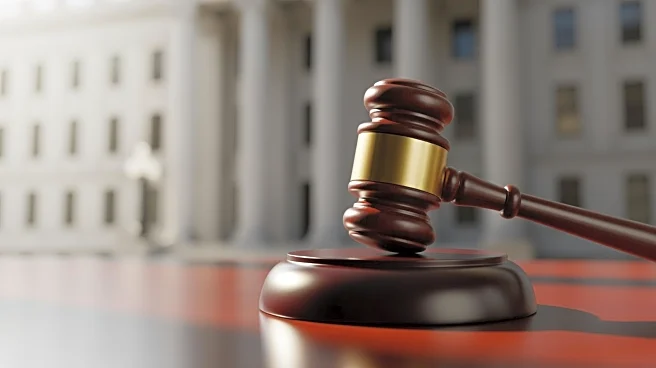What's Happening?
Arizona Democrat Rep. Adelita Grijalva was officially sworn in after a delay of more than seven weeks following her special election victory. The delay was attributed to the ongoing government shutdown,
which has impacted various governmental operations. Rep. Grijalva expressed relief at finally being able to assume her duties, stating, 'At long last I get to actually do my job.' The swearing-in ceremony marks the end of a prolonged waiting period for Grijalva, who won her seat in a special election. The shutdown has been a significant hurdle, affecting not only her swearing-in but also other governmental functions and services.
Why It's Important?
The swearing-in of Rep. Grijalva is significant as it highlights the impact of the government shutdown on political processes and operations. The delay in her assuming office underscores the broader challenges faced by newly elected officials during periods of governmental inactivity. This situation reflects the potential disruptions in legislative activities and the functioning of democratic processes. The shutdown has broader implications for public policy and governance, affecting not only elected officials but also the constituents they represent. The resolution of such delays is crucial for maintaining the integrity and continuity of governmental operations.
What's Next?
With Rep. Grijalva now sworn in, she can begin her legislative duties and address the needs of her constituents. The focus will likely shift to resolving the issues caused by the government shutdown and ensuring that similar delays do not occur in the future. Stakeholders, including political leaders and civil society groups, may push for measures to prevent shutdowns from impacting essential governmental functions. The situation may also prompt discussions on improving the efficiency and resilience of political processes during times of governmental inactivity.
Beyond the Headlines
The delay in Rep. Grijalva's swearing-in due to the government shutdown raises questions about the robustness of political systems in handling crises. It highlights the need for contingency plans to ensure that democratic processes are not hindered by administrative or political disruptions. This event may lead to broader discussions on the ethical and legal responsibilities of government in maintaining operational continuity during shutdowns.









